‘Potion Permit’ Mobile Review – A Great Game Held Back by a Few Issues on iOS – TouchArcade
 When Playdigious announced that MassHive Media’s Potion Permit ($6.99) was coming to mobile, I was excited to see how the developer would bring it over to iOS. I had heard mixed things about the game itself, but it always looked great visually and I wondered if it would be a good game to relax with. I hadn’t played much of it before the mobile version was announced though, and decided to try it out before getting review code for the iOS version. I’ve played it on Steam and more-recently on Xbox Series X as well. I wanted to see how the mobile version felt as a game, and also how it compared to the Steam Deck and current best console version.
When Playdigious announced that MassHive Media’s Potion Permit ($6.99) was coming to mobile, I was excited to see how the developer would bring it over to iOS. I had heard mixed things about the game itself, but it always looked great visually and I wondered if it would be a good game to relax with. I hadn’t played much of it before the mobile version was announced though, and decided to try it out before getting review code for the iOS version. I’ve played it on Steam and more-recently on Xbox Series X as well. I wanted to see how the mobile version felt as a game, and also how it compared to the Steam Deck and current best console version.
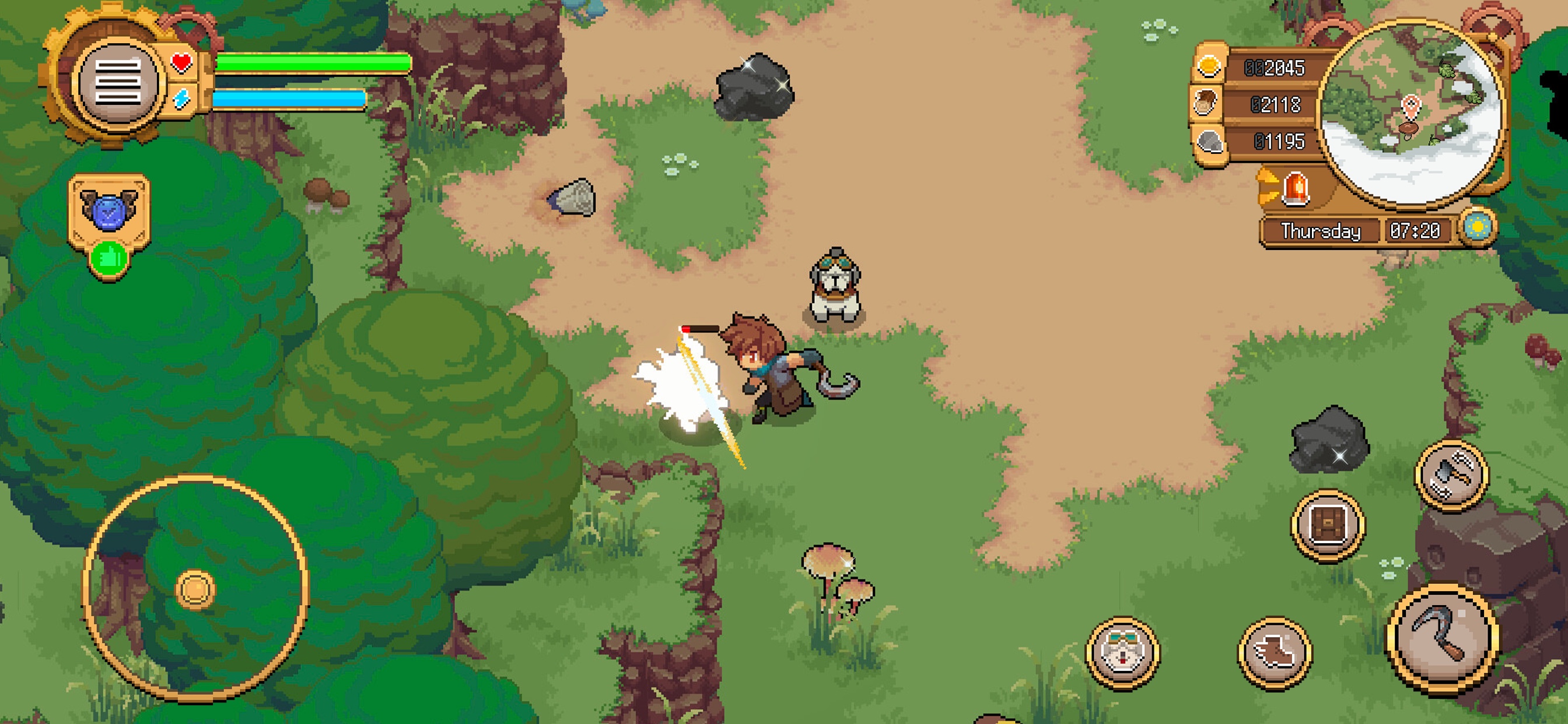
While there’s no shortage of simulation RPG games these days, Potion Permit stood out with how it brought in elements I liked from Rune Factory (simulation) and Atelier (potion and crafting aspects) together. In Potion Permit, you play as a chemist trying to save folks in the town of Moonbury. You do this by playing a few mini-games or solving some puzzles to diagnose, gather ingredients, and brewing potions. In addition to this, you also grow relationships with many townsfolk, and I appreciate how visibly the behavior and dialogue changes as you get closer to people in Potion Permit. In fact, it has a refreshing take on dialogue and everyone just doesn’t act nice at all times.
Potion Permit is a very relaxing game, but it also has a bit of a grind in many parts. I expected this based on what a friend told me before so it wasn’t a big deal, but keep that in mind if you’re planning on jumping in. You will need to get into the routine of gathering, crafting, interacting, and more here. Great games in the genre manage to hide the tedium well. Potion Permit can sometimes fail at that. Despite this, I’ve been treating Potion Permit as a nice break of an experience between fighting games or long RPGs I’m currently playing like Owlcat’s Rogue Trader on Steam Deck.
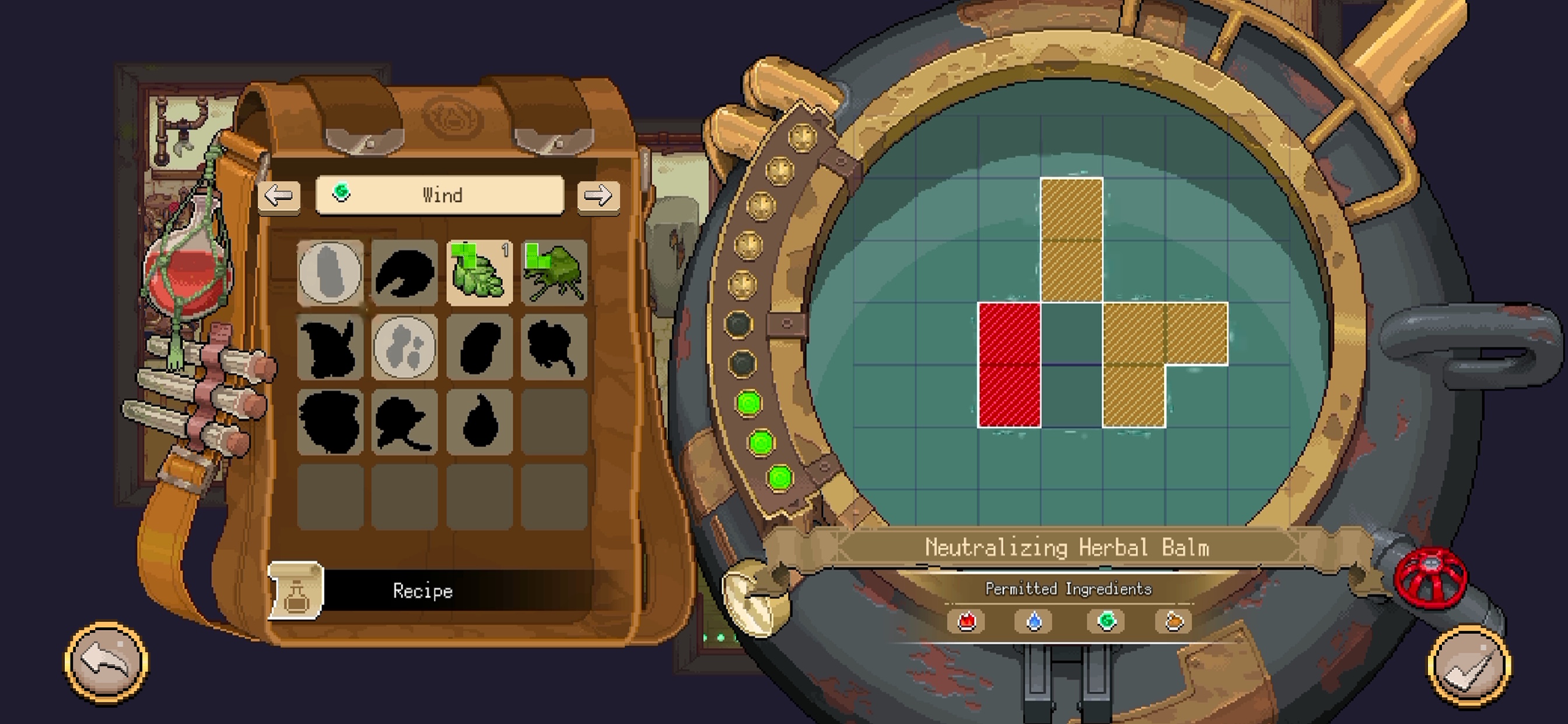
One of Potion Permit’s strengths across the board is the visuals. I love the aesthetic, animations, and overall feel of the game. It definitely borrows from other games mechanically, but manages to translate it all including puzzles and mini-games very well to its art style. It also has fullscreen support on iPhone 15 Pro and iPad Pro (2020). While I have some issues with this port, Playdigious did a lovely job making the game’s aesthetic and visuals absolutely shine on iOS.
Despite not playing it at launch, I listened to the Potion Permit soundtrack on and off. It has one of the better soundtracks from games in the genre, and also has pleasant audio design throughout in combat, interactions, and how it handles dialogue for the many characters. Check out the soundtrack on YouTube.
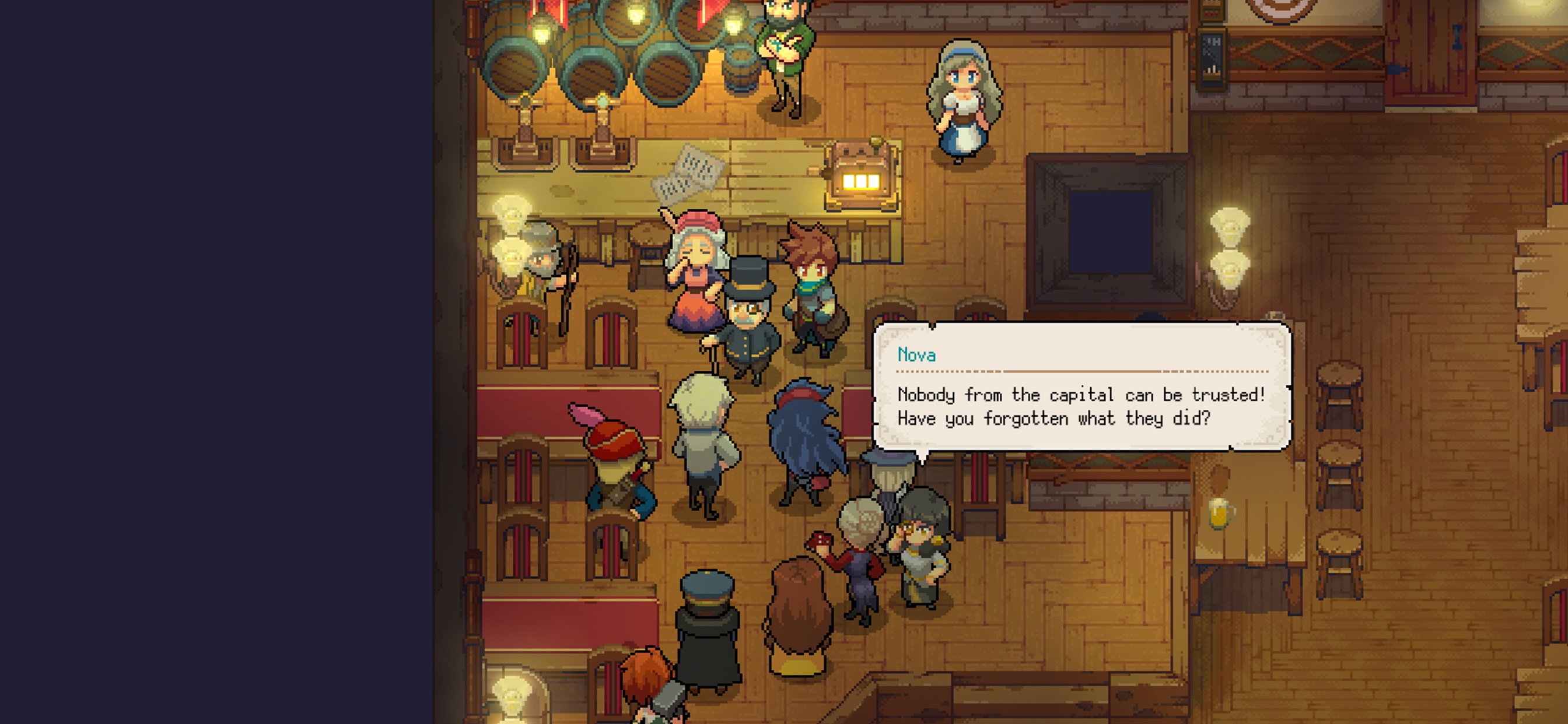
On iOS, Potion Permit ships with touch controls, controller support, cloud saves, and Game Center achievements. The iCloud save support works great in my testing. I ended up playing on my iPhone 15 Pro and iPad Pro (2020) on and off over the last week to see how different parts of the game scaled and how they ran across older and newer devices. I also tested on an iPhone 13 Mini for a bit in a new save file, and found the text even worse there. I’ll cover the text and interface issues in a bit.
When it comes to the controls, the controller support in Potion Permit is great. It has appropriate button prompts depending on the controller used, and swaps between touch and controller prompts on the fly. In my testing with the Razer Kishi and the 8BitDo over bluetooth, it displayed Xbox prompts for the former and PlayStation prompts for the latter. The touch controls are also well done for the most part, but some menus and touch targets should’ve been better. Having played Potion Permit on Steam Deck as well to see how it runs and looks there, Playdigious did a good job translating that interface for touchscreens. You can also enable a floating pad for movement and should. Check out the cropped image below showing the difference in interface when using a controller and touch controls for certain controls:
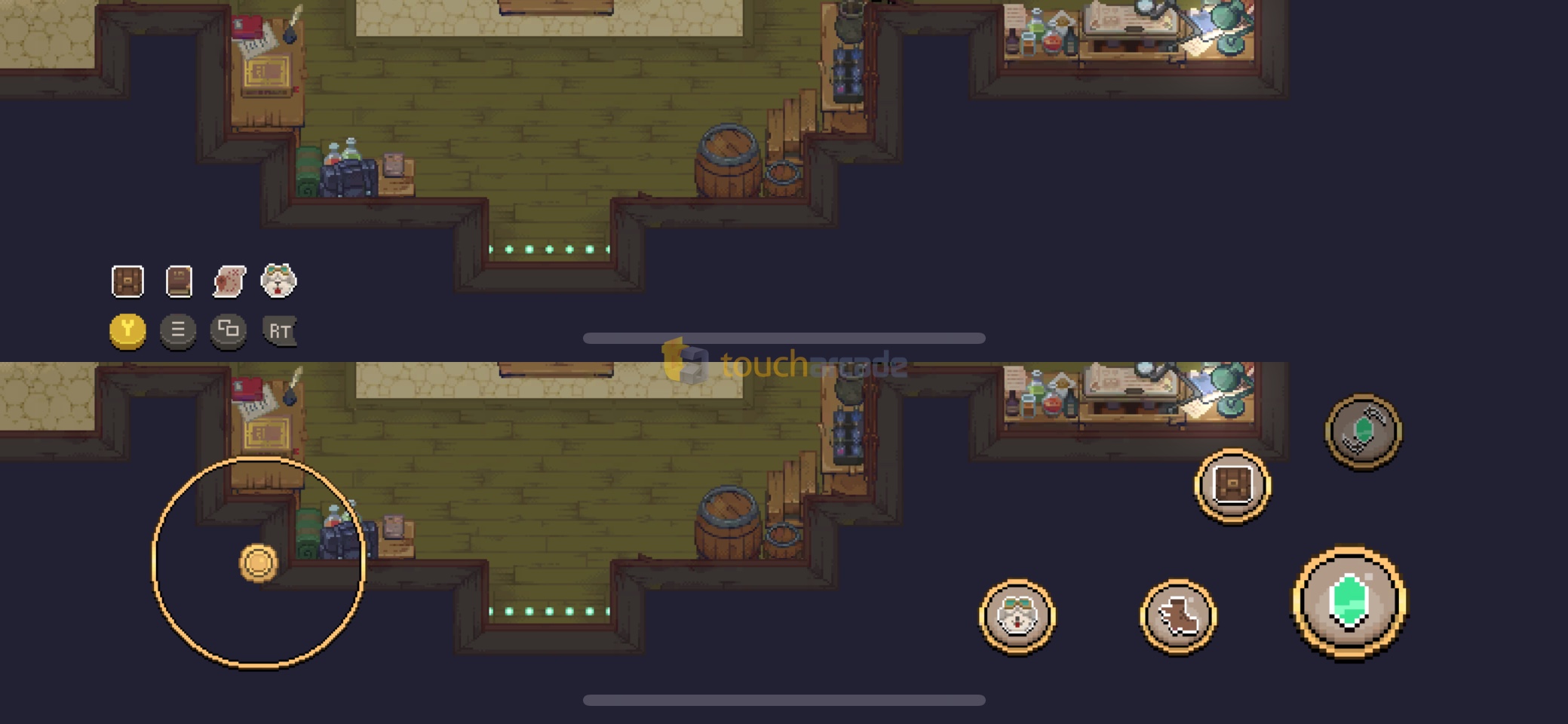
Potion Permit on iOS has a few issues right now. If you treat it as a console game ported to mobile and play it like one, most of those issues will not affect you though. Using a controller sorts out the small touch target issues in the interface, but the text size remains a bit too small even after increasing the size in the game’s settings. This text size is an issue even on bigger screens like the Steam Deck. One other oddity is how you can’t scroll through some menus and need to use the on-screen buttons to move the cursor. The lack of suspend or save anywhere on Potion Permit on iOS is also a problem for a game on mobile. I wish it had a good auto save system because I don’t want to have to get back to save each time I play.
When it comes to platform differences, Potion Permit is not best played on iOS at least right now. The best portable version is Steam Deck followed by mobile in the middle and Switch on the lower end. Having tested Potion Permit on Steam Deck and Xbox Series X, it really feels like a game designed to be played on a monitor with its text size and interface rather than a portable with a smaller screen. The Xbox Series X version also runs smoothly across the board just like the Steam Deck version. The Steam Deck has the same text size issues though. I hope a future update can add an option for higher frame rate targets on modern iOS devices at least if any of these text size fixes aren’t in the works.
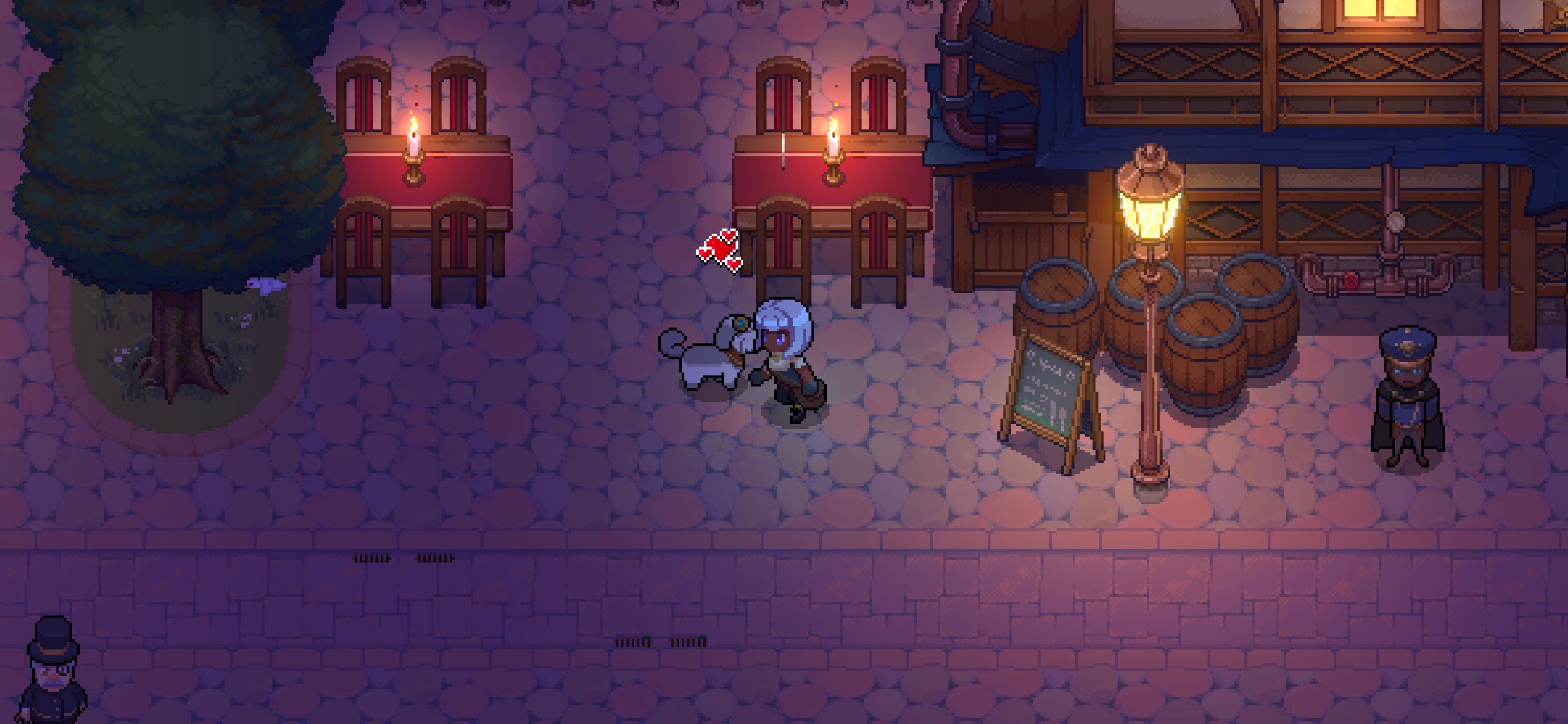
Potion Permit is a great game that brings together interesting elements from franchises I love into its own charming package. The mobile version on iOS at least, should’ve been better though. Right now some interface elements don’t feel tailored to touchscreens, and the text size is too small almost across the board. I was also hoping to also see it target a higher frame rate on newer devices like the iPhone 15 Pro. Given this was done by the excellent Playdigious who have released some of the best mobile ports, I expected better. Right now Potion Permit isn’t best played on iOS, but this mobile version isn’t a bad way to play MassHive Media’s simulation RPG, especially at its low asking price compared to consoles.

